Criminal Fiction: Winter in review
Every month, Daneet Steffens uncovers the latest goings on in mystery, suspense, and crime fiction. See previous columns on the Criminal Fiction archive page
Winter’s shorter days are a terrific time to dig into writer interviews, old and new. One of my favorite bookish series is the New York Times’ "By the Book" column, which embraces a rich selection of crime-fiction authors including Louise Penny, Don Winslow, Michael Connelly, Paula Hawkins, and Philip Kerr.
And it’s in a different format and less high-profile, but the fall issue of Johns Hopkins Magazine has a fascinating interview with Chester Himes biographer Lawrence Jackson.
Finally, as someone who got to visit the first two UNESCO Cities of Literature, Edinburgh and Melbourne, on a wonderful work trip and appreciating what this particular recognition entails, it’s terrifically exciting to see Seattle welcomed into that particular fold.
Reading around: new titles on the crime fiction scene
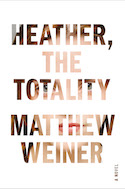
Mad Men creator Matthew Weiner’s debut novel, Heather, the Totality (Little, Brown), may be slim but it packs a substantial punch. This is a tale in which every character — the eponymous Heather, her parents Mark and Karen, and a dude from the other side of the tracks, Bobby — has an oddly creepy element to them, so as a reader, there’s nowhere to hide. It is also a trenchant reminder of the critical damage an excess of obsessiveness can do, no matter who you are or what your intent might be.
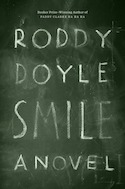
A lonely man hangs out in his local bar, in Roddy Doyle’s Smile (Viking), bathed in memories of his no-longer-existent happy, indulgent relationship. He was a writer, a music critic; she succeeds as a celebrity chef, television series and all. As the book opens, he’s hit rock bottom, keeping a bar-stool warm, when someone from his past recognizes him and strikes up a conversation. Where that conversation goes in this novel of psychological suspense may or may not surprise you, but Doyle’s portrayal of a loving, intimate, empathetic relationship and its original inspiration — the longing of a human heart — will stick in your mind long after the final page.
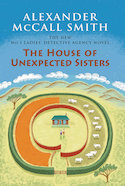
Mma Ramotswe, she of the No. 1 Ladies’ Detective Agency in Gabarone, Botswana, gets caught up in multiple intriguing mysteries in Alexander McCall Smith’s The House of Unexpected Sisters (Pantheon). Why was a hardworking employee suddenly fired — and was it even legally done? Why is someone from Mma Ramotswe’s past turning up like a bad penny? And who is the mystery lady who shares Mma Ramotswe’s name? Ably abetted by her partner-in-crime Mma Makutsi, as well as by friends and family, and armed as always with wisdoms from Clovis Anderson’s The Principles of Private Detection, Ramotswe brings a curious mind and an attentive heart to her work, not to mention plenty cups of comforting redbush tea.
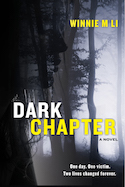
In her acknowledgements, Winnie M Li makes it abundantly clear that her debut novel Dark Chapter (Polis), which begins with the rape of an adult woman, Vivian, by a teenage boy, Johnny, is drawn from personal experience. If anything, this makes the story — which, while nerve-shreddingly explicit in terms of the assault, focuses primarily on the aftermath for both the woman and the boy — all the more raw in its intensity. Despite wandering into stereotype-territory at times, Li’s also produced a riveting, highly empathetic read, one that recently won the UK’s prestigious Not the Booker prize.
The Quintessential Interview: Jon McGregor
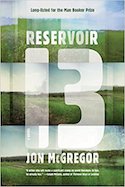
On a cold winter’s day, a young girl goes missing near a rural English village. Through the searches and the perpetually open police investigation, her parents seen as both despairing and under suspicion, McGregor delineates the lives and times of the locals: villagers fall in and out of love, lose their jobs and gain new ones; flocks of birds fly south and return, badgers settle in their setts, and newborn foxes tumble over each other in their dens. In Reservoir 13, McGregor, a terrific novelist with the pen of a poet, has woven a mesmerizing tapestry, a tale not so much about a mystery, as about the sometimes-lingering repercussions that a crime can have on the community around it and the inexorable passage of time. McGregor is based at the University of Nottingham, where he also edits the excellent epistolary literary journal The Letters Page.
What or who are your top five writing inspirations?
- For this book in particular, Tom Drury and John McGahern were high on the list
- Readers who got what I was trying to do last time
- Readers who didn't get what I was trying to do last time
- The fear of alternative employment
- Also, coffee
Top five places to write?
- Anywhere with a flat surface, some background noise, and good coffee
- The Specialty Coffee Shop in Nottingham
- Cartwheel Coffee in Nottingham
- Bromley House Library in Nottingham
- Long-distance trains if I've packed a flask of good coffee
Top five favorite authors?
- Lydia Davis
- Alice Oswald
- Tom Drury
- Yiyun Li
- Donald Barthelme
Top five tunes to write to?
- Diamond Mine by Jon Hopkins and King Creosote
- Born into Trouble as the Sparks Fly Upwards by The Silver Mt. Zion Memorial Orchestra & Tra-La-La Band.
- Shakkei by Origamibiro
- Forty Part Motet by Thomas Tallis
- You Are the One I Pick by Felix (fyi these are all albums but if I had to keep getting up to change tracks I would never get any writing done)
Top five hometown spots?
- Broadway Cinema for films and food and bumping into people
- Specialty Coffee and Cartwheel Coffee for amazingly good coffee
- Iberico World Tapas for fine tapas and a place to go with the best company
- Sherwood Forest for getting back in touch with the trees and pretending to be an outlaw
- The Pillar Box for excellent gin and raconteuring